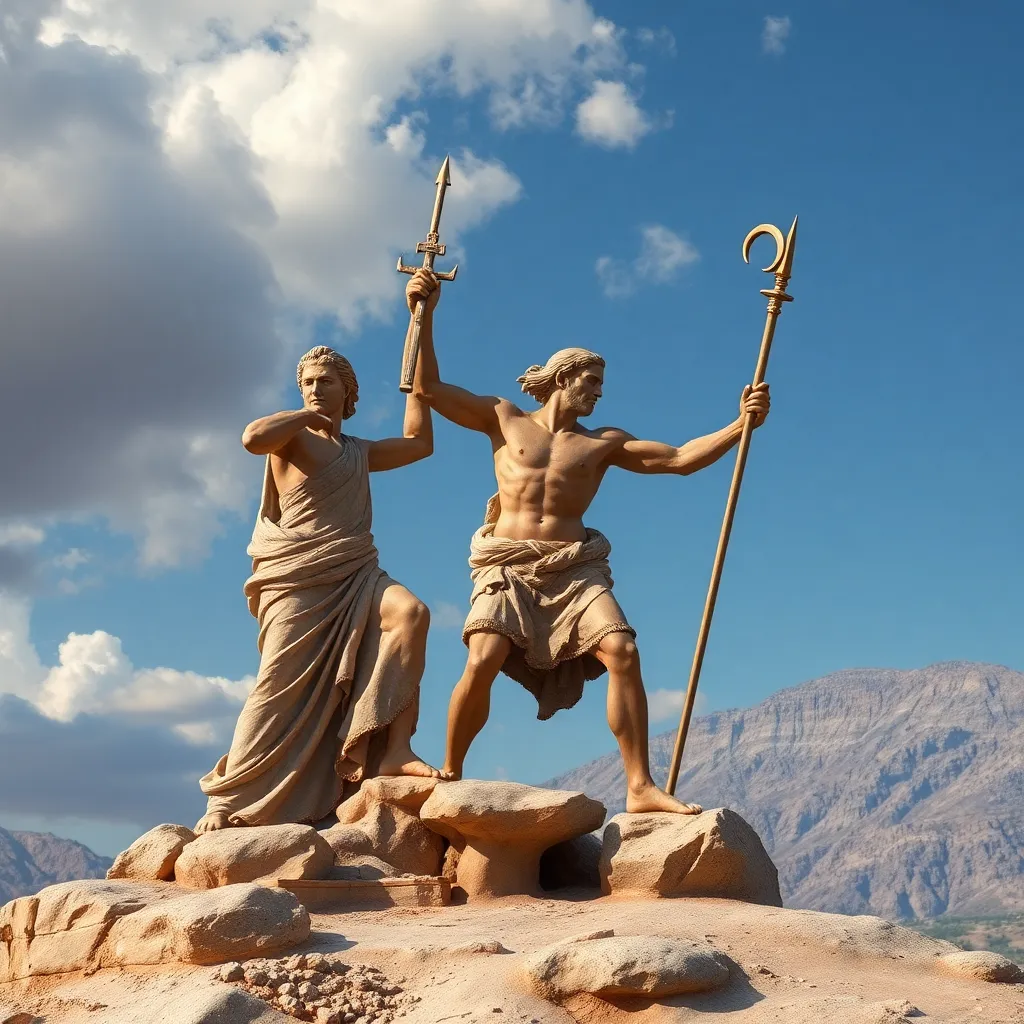The Iliad’s Impact on the Understanding of Greek Culture
I. Introduction
The Iliad, attributed to the ancient Greek poet Homer, is one of the oldest and most significant works of Western literature. Composed in the 8th century BCE, this epic poem chronicles the events of the Trojan War, focusing particularly on the wrath of Achilles and its consequences. The Iliad not only serves as a narrative of heroic deeds and battles but also offers profound insights into the values, beliefs, and social structures of ancient Greek culture.
As a cornerstone of ancient Greek literature, The Iliad has influenced countless generations of readers and writers, shaping the cultural landscape of Greece and beyond. This article aims to explore the impact of The Iliad on our understanding of Greek culture, examining its historical context, themes, and legacy.
II. Historical Context of The Iliad
The Iliad was composed during a period marked by the transition from oral to written tradition. This era, often referred to as the Dark Ages of Greece, saw the gradual emergence of city-states and the consolidation of Greek identity. The poem is believed to have been recited by bards long before it was committed to writing, showcasing the influence of oral storytelling on its structure and themes.
Homer, as a cultural figure, played a pivotal role in this period. His works, including The Iliad and The Odyssey, became foundational texts for the Greeks, encapsulating their values and beliefs. The reverence for Homer can be seen in the way his narratives were interwoven into educational practices and cultural rituals.
III. Themes in The Iliad
The Iliad is rich with themes that reflect the complexities of Greek society. Some of the most prominent themes include:
- Honor and glory (kleos) in Greek society: The pursuit of kleos, or glory, is central to the motivations of the characters. Heroes like Achilles and Hector strive for everlasting fame through their deeds in battle.
- The concept of fate versus free will: The characters grapple with the tension between predetermined fate and their own choices, highlighting the philosophical dilemmas of autonomy in the face of destiny.
- The role of the gods and divine intervention in human affairs: The gods frequently intervene in the lives of mortals, reflecting the belief that human fortunes are often dictated by divine will.
IV. The Role of Warfare in Greek Culture
Warfare is a dominant theme throughout The Iliad, embodying the values and social structures of ancient Greece.
- The representation of heroism and valor in battle: The Iliad glorifies the warrior ethos, with characters exemplifying bravery, skill, and honor in combat.
- The impact of war on social structures and relationships: The effects of war are portrayed not only in the battlefield but also in the familial and social bonds that are tested and transformed by conflict.
- The portrayal of the Trojan War as a reflection of Greek values: The epic encapsulates the complexities of loyalty, honor, and the tragic consequences of pride, serving as a microcosm of Greek ideals.
V. The Representation of Women in The Iliad
While The Iliad is predominantly a tale of male heroes, it also features significant female characters whose roles contribute to the understanding of Greek society.
- Analysis of female characters and their roles: Figures such as Helen, Andromache, and Briseis play crucial roles in the narrative, influencing male characters and the course of events.
- The intersection of gender and power dynamics: The treatment of women often reflects the patriarchal structures of Greek society, yet their agency and influence are evident in the text.
- How women’s voices contribute to the understanding of Greek society: The perspectives of female characters provide insight into the societal norms and the emotional landscape of the time.
VI. The Iliad’s Influence on Greek Philosophy
The Iliad’s themes have had a lasting impact on Greek philosophical thought.
- Connection between themes in The Iliad and later philosophical thought: Concepts of ethics, virtue, and the nature of humanity explored in the epic resonate with later philosophical inquiries.
- The role of The Iliad in shaping moral and ethical discussions: The dilemmas faced by characters serve as a foundation for discussions on morality, justice, and human behavior.
- Influence on key philosophers such as Plato and Aristotle: The Iliad’s exploration of heroism and ethics influenced the ideas of Plato and Aristotle, who engaged with its themes in their philosophical works.
VII. The Iliad’s Legacy in Arts and Literature
The legacy of The Iliad extends far beyond its original context, influencing various forms of art and literature throughout history.
- Adaptations and reinterpretations throughout history: The Iliad has inspired countless adaptations, from ancient plays to modern films, each interpreting its themes for new audiences.
- The Iliad’s impact on later literary works and genres: The epic’s influence can be seen in the works of Virgil, Dante, and many others, shaping the narrative structures of epic poetry.
- The continued relevance of its themes in contemporary culture: Themes of war, honor, and the human condition remain pertinent today, making The Iliad a timeless exploration of human experience.
VIII. Conclusion
In summary, The Iliad serves as a vital source for understanding ancient Greek culture, offering insights into the values, beliefs, and social dynamics of the time. Its exploration of themes such as honor, fate, and the complexities of warfare provides a nuanced perspective on Greek identity.
The enduring significance of Homer’s work continues to be a focus of modern scholarship, as researchers delve into its implications for our understanding of human nature and cultural identity. The interplay between literature and culture, as exemplified by The Iliad, emphasizes the profound impact of storytelling on societal values and collective memory.




